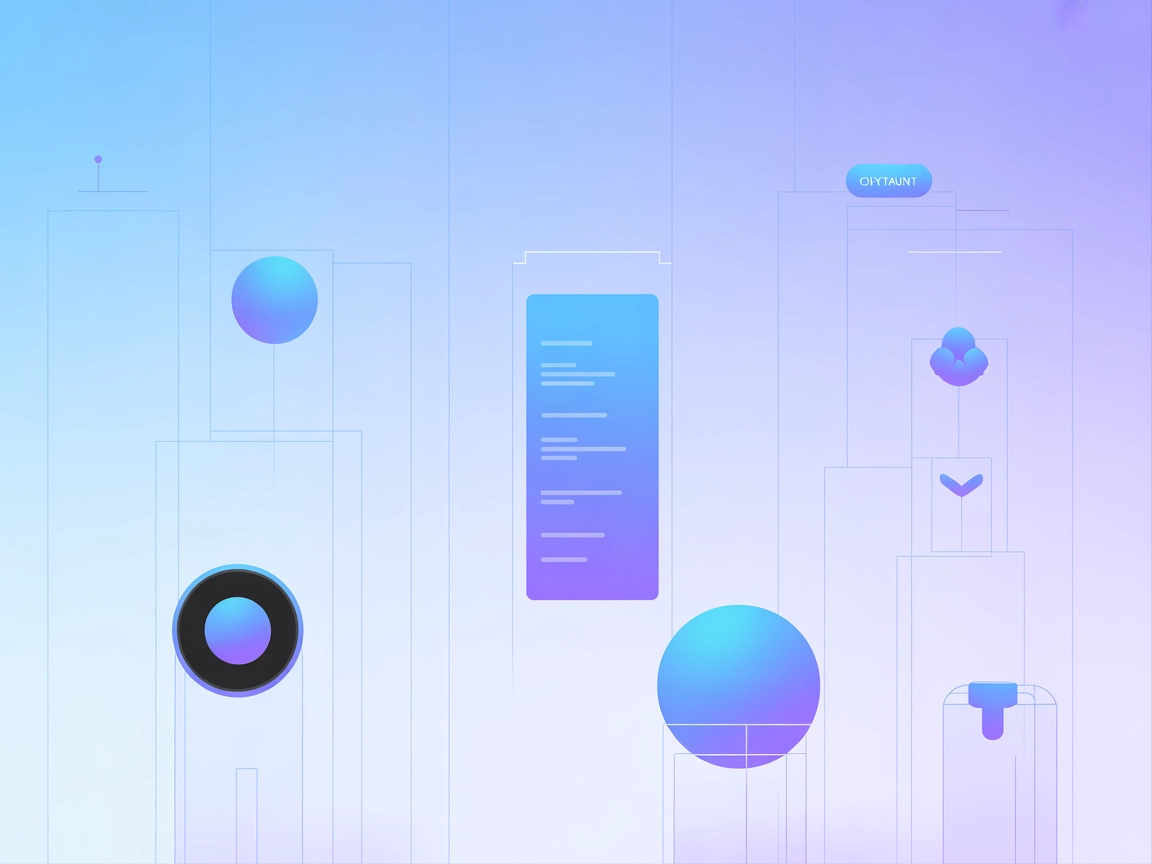
AI Agent for Microsoft Fabric MCP
Seamlessly connect your workflows with Microsoft Fabric using the powerful Python-based MCP server. Unlock advanced workspace, lakehouse, warehouse, and table management, automate SQL queries, and optimize your PySpark notebooks with AI-driven insights and LLM integration. Boost productivity, ensure data integrity, and accelerate analytics with robust, fabric-specific tools—all from your IDE or via HTTP.

Comprehensive Operations for Microsoft Fabric
Easily manage workspaces, lakehouses, warehouses, and tables directly from your IDE or via API. Take advantage of advanced delta table schema retrieval, SQL query execution, report & semantic model management, and streamlined data loading to supercharge your analytics environment.
- Workspace & Lakehouse Management:
- Create, list, and switch between Fabric workspaces and lakehouses with ease.
- Delta Table & Metadata:
- Retrieve delta table schemas and metadata for complete data transparency.
- SQL Query Automation:
- Execute and automate SQL queries across data sources for faster analytics.
- Report & Semantic Model Operations:
- Manage reports and semantic models efficiently within your analytics pipeline.

Advanced PySpark Notebook Automation
Accelerate your PySpark development with intelligent notebook templates, smart code generation, and advanced validation. Leverage AI-powered performance analysis, fabric-specific optimizations, and real-time execution insights to maximize productivity.
- Intelligent Notebook Templates:
- Quickly generate PySpark notebooks using 6 specialized templates for ETL, analytics, ML, and more.
- Smart Code Generation:
- Automate PySpark and Fabric code for common operations, boosting reliability and speed.
- Comprehensive Validation:
- Ensure code quality with advanced syntax, best practices, and compatibility checks.

AI-Powered LLM Integration
Transform your development experience with natural language interfaces, context-aware assistance, and intelligent code formatting. Get optimization suggestions and explanations powered by large language models for every stage of your PySpark and Fabric workflow.
- Natural Language Code Assistant:
- Interact with your data and notebooks using natural language requests via LLMs like Claude or GPT.
- Context-Aware Optimization:
- Receive smart, context-driven optimization suggestions and explanations for every project.
- Intelligent Formatting & Explanations:
- Benefit from automatic code formatting and detailed explanations powered by AI.
MCP INTEGRATION
Available Microsoft Fabric MCP Integration Tools
The following tools are available as part of the Microsoft Fabric MCP integration:
- list_workspaces
List all available Microsoft Fabric workspaces for your account.
- set_workspace
Set the current workspace context for subsequent operations and queries.
- list_lakehouses
List all lakehouses within a selected workspace.
- create_lakehouse
Create a new lakehouse in a specified workspace with optional description.
- set_lakehouse
Select and set the active lakehouse context for the session.
- list_warehouses
List all warehouses available in a workspace.
- create_warehouse
Create a new warehouse in a chosen workspace with a description.
- set_warehouse
Set the current warehouse context for further interactions.
- list_tables
List all tables present in a specified lakehouse.
- get_lakehouse_table_schema
Retrieve the schema for a particular table in a lakehouse.
- get_all_lakehouse_schemas
Get schemas for all tables in a specified lakehouse.
- set_table
Set the current table context to work with specific data.
- get_sql_endpoint
Retrieve the SQL endpoint for a lakehouse or warehouse.
- run_query
Execute SQL queries on lakehouses or warehouses to retrieve custom data.
- load_data_from_url
Load external data from a URL into a designated table in Microsoft Fabric.
- list_reports
List all Power BI reports available in a workspace.
- get_report
Retrieve details about a specific report using its ID.
- list_semantic_models
List all semantic models within a selected workspace.
- get_semantic_model
Get detailed information about a specific semantic model by ID.
- list_notebooks
List all notebooks available in a workspace.
- get_notebook_content
Retrieve the full content of a specific notebook by its ID.
- update_notebook_cell
Update the content of a specific cell in a notebook.
- create_pyspark_notebook
Create a new PySpark notebook using a selected template in a workspace.
- create_fabric_notebook
Create a Fabric-optimized notebook with integration or streaming templates.
- generate_pyspark_code
Generate PySpark code snippets for common data operations and transformations.
- generate_fabric_code
Generate Fabric-specific code for lakehouse operations and monitoring.
- validate_pyspark_code
Validate PySpark code for syntax and best practices before execution.
- validate_fabric_code
Check code for Microsoft Fabric compatibility and standards.
- analyze_notebook_performance
Analyze notebook performance for optimization and efficiency recommendations.
- clear_context
Clear the current session context to reset workspace, lakehouse, or table selections.
Connect Your Microsoft Fabric with FlowHunt AI
Connect your Microsoft Fabric to a FlowHunt AI Agent. Book a personalized demo or try FlowHunt free today!

What is ACI.dev
ACI.dev is an open-source agent-computer interface platform developed by Aipolabs that empowers developers to seamlessly connect AI agents—including LLMs and agentic IDEs—to over 600 third-party applications through unified function calling. By leveraging its Unified Model Context Protocol (MCP) Server, ACI.dev dramatically simplifies integration by exposing just two meta-functions—'search' and 'execute'—that can access a vast library of pre-built tool integrations, such as Gmail, HubSpot, Notion, and Slack. The platform is designed for scalability, secure multi-tenant authentication, and natural language permission controls, making it easy to authorize AI agents, manage OAuth flows, and safely handle user credentials. 100% open-source, ACI.dev accelerates agentic development and reduces the complexity of building powerful, secure, and reliable AI-powered applications.
Capabilities
What we can do with ACI.dev
With ACI.dev, you can unlock seamless and secure tool-use for AI agents, rapidly connect to hundreds of SaaS applications, and supercharge agentic workflows. Its Unified MCP Server model allows you to manage authentication, permissions, and tool discovery through one platform, making it ideal for both rapid prototyping and robust production deployments.
- Unified MCP Server
- Connect to 600+ tools via a single server endpoint for streamlined agent access.
- Managed Agent Authentication
- Authorize AI agents with user accounts using secure OAuth without manual token management.
- Pre-built Tool Integrations
- Quickly integrate essential business tools like Gmail, Slack, and Notion with no additional code.
- Secure Agent Secrets Manager
- Safely store and manage agent credentials with granular access controls.
- Natural Language Permission Controls
- Set and enforce AI agent permissions using plain English to prevent unwanted API calls.
- Agent Playground
- Test and validate agent tool use before deploying in production.

How AI agents benefit from ACI.dev
AI agents gain robust, secure, and scalable access to hundreds of third-party tools through ACI.dev’s Unified MCP Server. Developers can accelerate innovation, reduce integration complexity, and focus on building smarter agentic applications while the platform manages secure authentication, permissions, and tool execution.





